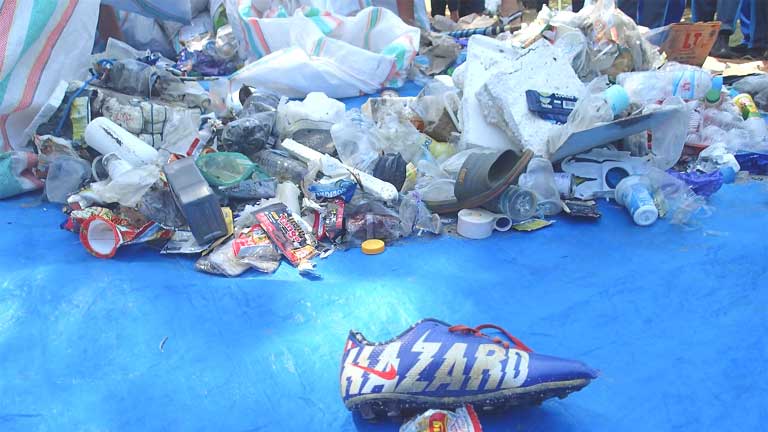In our current world of overconsumption, our everyday choices have more of an impact than ever before. There are many ways to reduce the amount of waste companies and consumers bring about as a result of consumer goods, from eliminating unnecessary packaging to supporting businesses that prioritize product sustainability.
If you’re looking for practical tips on how to minimize your environmental footprint while still being able to get the products you need at an affordable price, today is your lucky day! We’ll discuss various strategies for reducing product waste in this blog post so that we can all learn from each other and get closer to creating a better tomorrow.
Identify what products are generating the most waste in your daily life
In today’s world, it’s important to be mindful of our personal impact on the environment. One way to achieve this is to identify the products that generate the most waste in our daily lives.
According to studies, single-use items like plastic bags, straws, and food packaging are among the biggest culprits. This is because they are designed for one-time use and are discarded without much thought.
Other products, such as paper towels, disposable razors, and coffee cups with plastic lids, also contribute to our waste output. By becoming aware of these products, we can take steps to reduce our usage and make more conscious choices for the benefit of the planet.
Research creative ways to recycle or repurpose these items
Recycling and repurposing have become increasingly important to help reduce waste and preserve our environment. One creative way to recycle old items is to turn them into DIY storage solutions.
For example, an old ladder could be transformed into a bookshelf, while a broken dresser could be repurposed as storage space for gardening tools. Another option is transforming old t-shirts into reusable grocery bags or turning plastic bottles into planters for your garden.
By using your imagination and being mindful of the items you discard, you can help reduce waste and give new life to your old items.
Consider bulk purchasing and reusable packaging to cut down on waste
Bulk buying, especially for items like food and cleaning supplies, is an effective strategy to reduce product waste. It reduces the amount of individual packaging required, significantly cutting down on waste.
If you frequently purchase items like grains, spices, or cleaning supplies, consider buying in bulk. This strategy is particularly effective when combined with reusable packaging.
For instance, buying bulk powder products often requires less packaging than their smaller, individually packaged counterparts. Furthermore, by using your own reusable containers for storage, you can cut down on waste even further.
Thus, bulk powder packaging not only saves you money in the long run but also contributes to a more sustainable lifestyle.
Look into local organizations offering recycling programs
Do you care about the environment and want to do your part in reducing waste? You might be surprised to learn that there are local organizations in your area that offer recycling programs to help you better dispose of your waste.
By taking advantage of these programs, you can easily recycle items such as plastics, glass, metals, and paper and reduce the amount of waste that ends up in landfills. Not only can you feel good about doing your part to help the environment, but you might also meet other like-minded individuals who share your passion for sustainability.
Substitute single-use items with reusable alternatives, like straws and bags
Reducing waste is a growing concern for our planet, and one simple way we can help is by substituting single-use items with reusable alternatives. Items like plastic straws and bags may seem inconsequential, but they add up quickly in landfills and oceans.
By switching to reusable options, such as silicone or metal straws and cloth grocery bags, we can make a positive impact on the environment. Not only do reusable items produce less waste, but they also save us money in the long run. By making a small change in our daily habits, we can make a big difference for our planet.
Identify areas of your home that need decluttering and donate unwanted items instead of trashing them
Are you tired of feeling overwhelmed by the clutter in your home? Take a deep breath and begin by identifying the areas in your home that need decluttering. Maybe it’s a closet overflowing with clothes you haven’t worn in years or a bookshelf filled with old textbooks.
Whatever the area may be, make a plan to sort through and donate the unwanted items instead of simply throwing them away. Not only will this help you feel more organized and less stressed, but it will also benefit someone else who may be in need of those items.
All in all, becoming a more conscious consumer is within your reach and can have a tremendous impact on reducing waste. Identifying the core areas of our lifestyle that inflict the most waste is the first step, and then researching creative ways to reuse and recycle these items can get us one step closer to living more sustainably.


